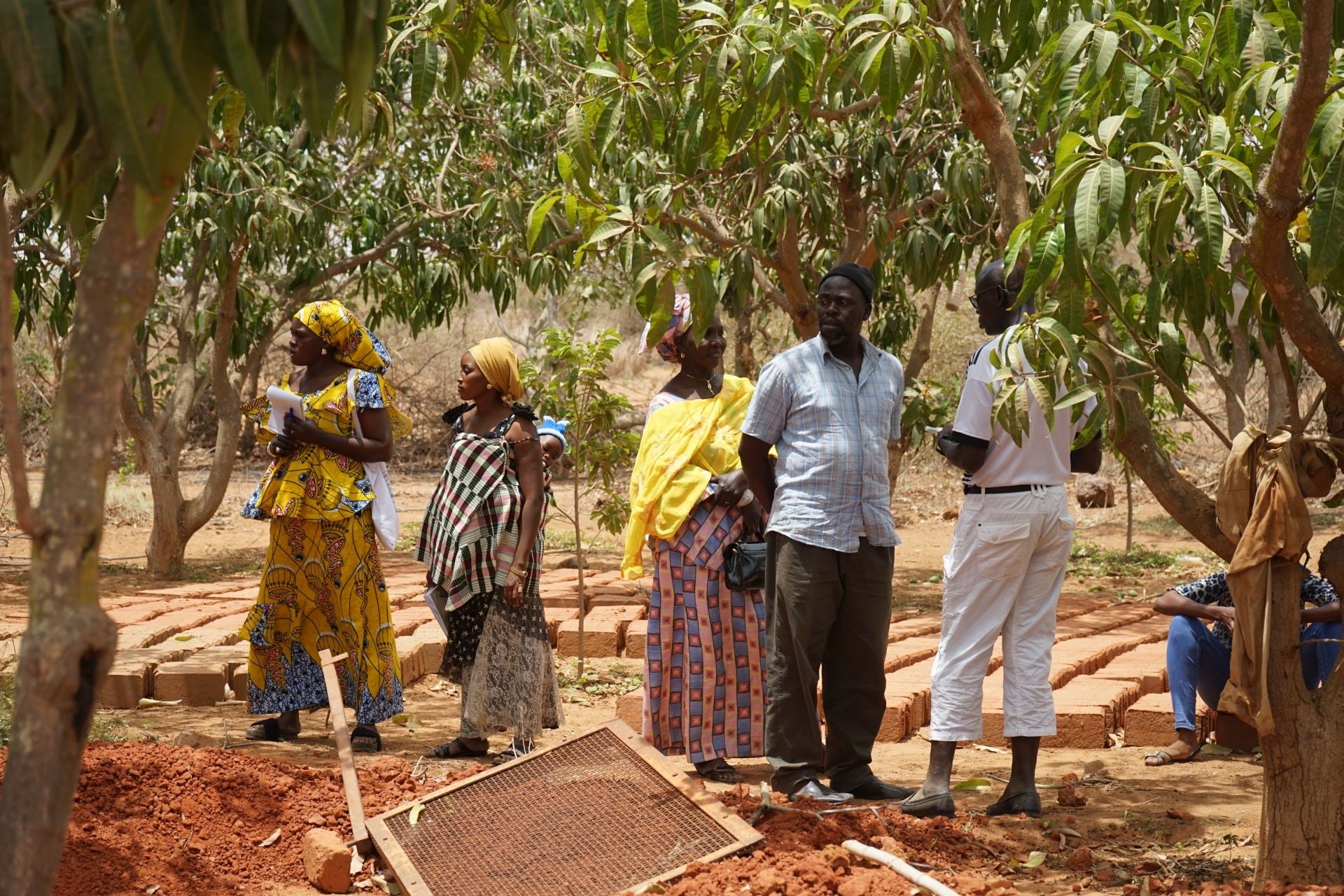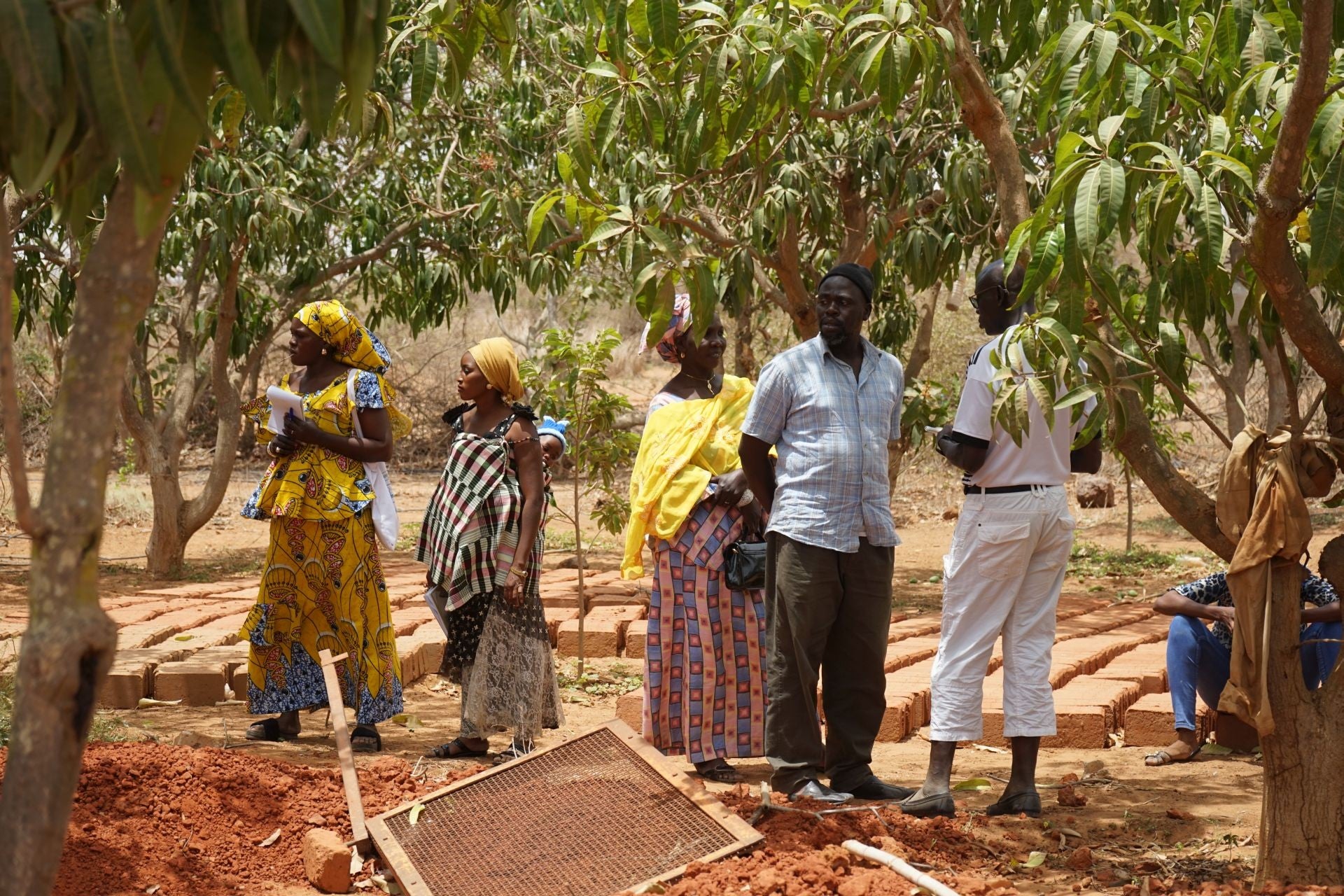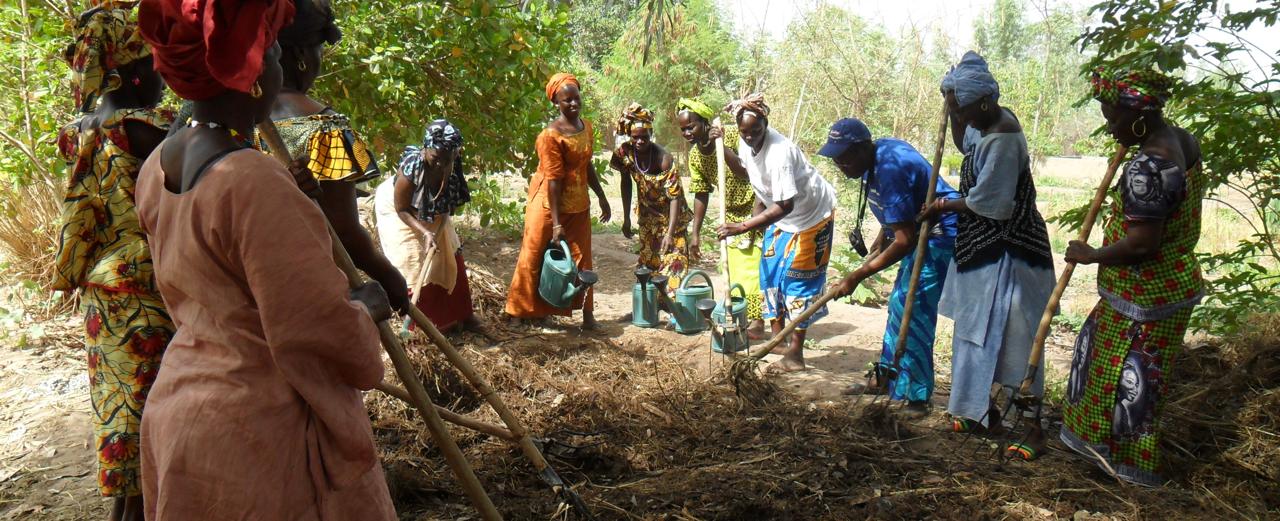
Healthy soils and a better climate in Senegal

need
Planting trees that make depleted soils in Senegal more fertile again.
activity
Small farmers receive tree seedlings and learn organic farming techniques.
Measurable performance
Number of hectares planted with fertilizer trees and number of smallholder farmers converting to agroforestry.
Result
The first fruits, herbs and vegetables from different plants can be harvested because the soil is slowly recovering.
Systemically relevant impact
The soil has recovered and is more fertile again. Nutrient-rich plants grow here in greater variety. They are cared for by trained groups.
background


The good deed
AboutSenegal
Dakar
Capital city
16,296,360
Population
$3,256
Gross domestic product
per capita per year

Rank 166 of 189
Human Development Index
(Human Development Index)






